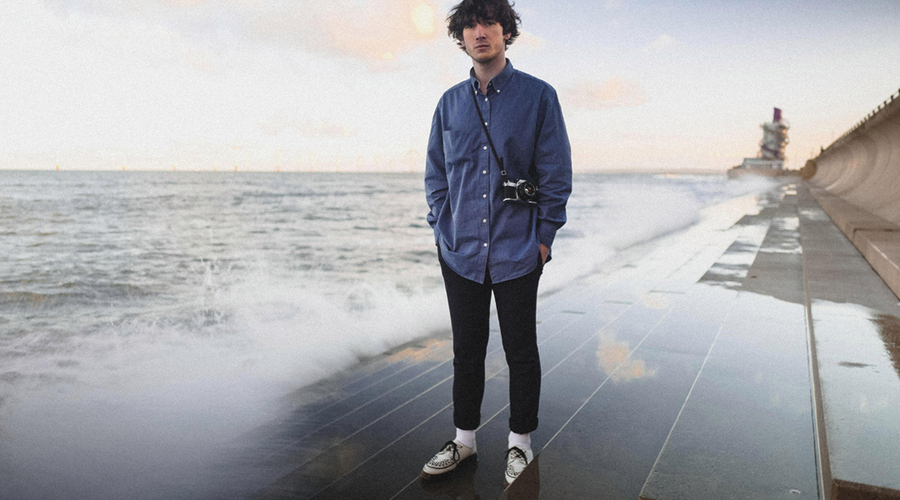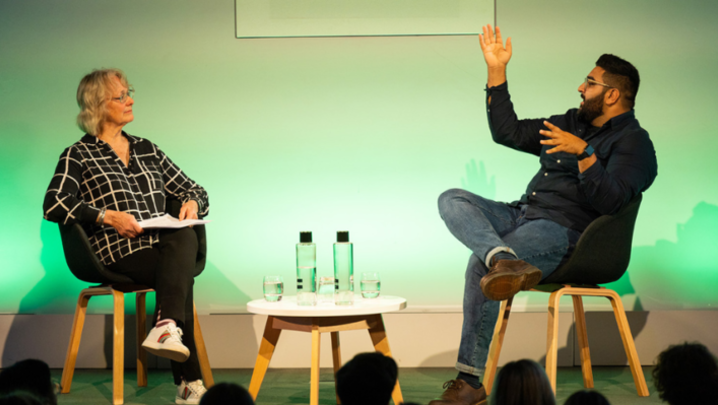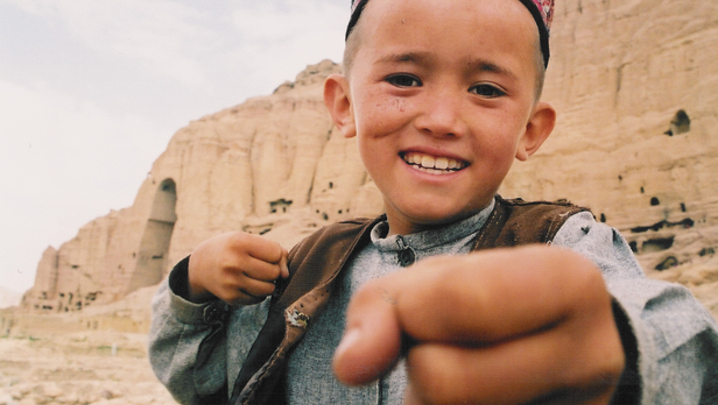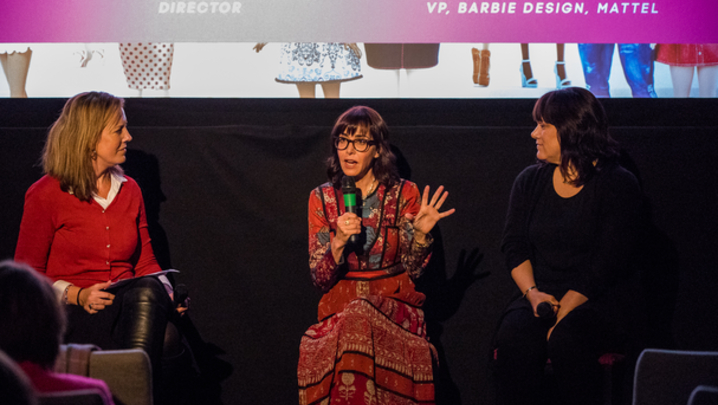Graeme Thompson salutes The Mighty Redcar and learns about the challenge of building relationships in difficult situations.
A small town on the north-east coast of England found itself trending on social media in the wake of a landmark factual series for BBC Two.
The Mighty Redcar, a four-part documentary made by 72 Films, won praise for its uplifting depiction of young people enduring the challenges of life in a northern town blighted by the closure of its steelworks, and for the series’ distinctive 1980s soundtrack.
But more importantly for the production team, who lived in the once-thriving resort for the best part of a year, the four 45-minute episodes shown earlier this autumn received warm endorsement from locals.
Director Dan Dewsbury admits that he and his crew faced suspicion and hostility in their first weeks. Townsfolk felt that television crews in the past had distorted life on Teesside.
“We moved in to a very functional flat in the town and basically set out to prove to everyone we were going to do this fairly,” says Dewsbury, who previously worked on titles such as The Age of Loneliness and The Detectives. “It felt like we met almost everyone in Redcar, trying to win their trust.
“Our worst moment came when we lost access to institutions, including the college and the school. This was a major setback given our focus on young people. Thankfully, we were able to win them round.”
The production followed a group of people in their late teens and early twenties attempting to realise their dreams against a backdrop of high youth unemployment and rising poverty.
The stories included those of Kaitlyn Kempen, who aspires to go to Rada while her mum works three jobs to pay the rent; James Daniels, whose dad is in prison and who is mentored by Redcar’s under-funded youth service into a job that just might keep him out of trouble; and Safy Diarrassouba, who has the potential to play netball for England, but is prevented from taking up a scholarship to a private school in Yorkshire by her mother who can’t bear to see her leave.
“It was hard filming some of these stories,” says Dewsbury, himself the product of a northern working-class upbringing. “We wanted happy endings for them all.”
One of the storylines that did have an upbeat conclusion involved Dylan Cartlidge, who worked as a waiter while writing and performing his own alternative hip-hop music.
Cameras followed Dylan as he travelled to London to meet Universal Music staffers. He was later signed to Glassnote Records (home to Mumford & Sons) and is now on tour. In episode 1, he spoke of his ambition to earn enough to bring his younger brother out of care.
Dylan’s musical journey, along with the heroic determination of vinylrecord store Black Slab to keep its business in Redcar, were underscored by the show’s synth-laden soundtrack, which featured an eclectic mix of 1980s icons, including Tears for Fears, Aretha Franklin and Jimmy Somerville.
Critical and popular reaction to the soundtrack resulted in one of Spotify’s most popular playlists.
“The music became incredibly important to the show,” says Dewsbury. “We’d done some filming at Redcar’s local radio station, which was playing a lot of 1980s music. After discussing with Danny Horan [the BBC commissioner now at Channel 4] and the editor, the 1980s vibe felt absolutely right for the series.”
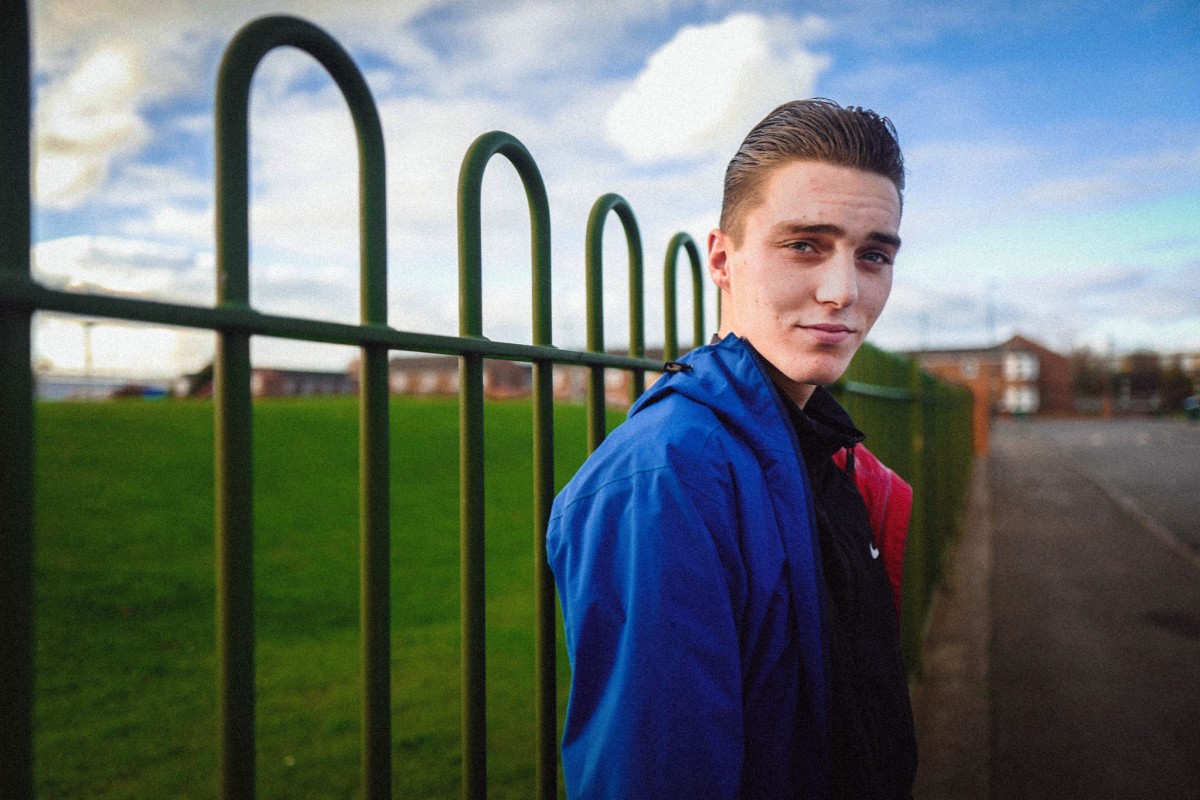
Over 36 weeks, the team shot considerably more than they were ever able to use. Some storylines fizzled out because of access difficulties or the young protagonists simply moved on.
“Lots of the young people we met ended up joining the forces to escape the town,” recalls the director, who has developed a reputation for building relationships in challenging situations.
“Redcar, like so many once-thriving communities, holds tight to its past. Older people talk about what it used to be like. That’s such a downer for the younger people. What came out of this for me is that you have to think of the future and invest in this new generation and not yearn for what’s lost.
“One of the most humbling things we witnessed was the way in which the youth service, business people and volunteers in Redcar went out of their way to support, mentor and encourage these guys.”
During his time in the town, Dewsbury recruited additions to his team. These included a local drone operator, who captured sweeping vistas of Redcar’s majestic seafront, dominated by the abandoned steelworks, and student Madison Cooper, who proved an authentic and engaging on-screen narrator.
“I always wanted a narrator from Redcar,” he says. “I wanted that voice to be empowered. So we found Maddy after an open audition. It was a collaboration between director and contributor.
“She had input on the script and was very much a part of the team. Her authenticity was one of the things that made the show distinctive.”
His researcher was RTS bursary student Adam Mann. “It was his first big job since graduating from university. His local knowledge was invaluable and he brought real enthusiasm and determination to the team,” he says.
After a marathon edit back in London, which Dewsbury describes as a labour of love for editors Samuel Sananta, Sam Bergson and Reva Childs, he took the unusual step of showing the episodes to the contributors.
“I decided that, if it didn’t feel like truth for those young people, it wouldn’t go in. I lost sleep over whether we had done justice to their stories. We made a few changes to the edit after listening to them. Their reaction meant everything. And when the series was broadcast I was so happy for them and the team.”
The filmic approach to the series and the unflinching storylines won praise from viewers and critics alike.
Chitra Ramaswamy in the Guardian wrote: “This is proper, heart-warming, heart-rending film-making that, for a few nostalgic hours, made me love the BBC again.”
And writing in the Times, Redcar’s initially sceptical MP, Anna Turley, said: “Please do watch The Mighty Redcar. It will make you laugh. It will break your heart. You will be rooting for our brilliant young people.
"But, most of all, I hope it makes you angry. Angry at the inequality of opportunity. Angry at the limitations that poverty brings.”
The success of The Mighty Redcar means there are likely to be more TV profiles of communities in “leftbehind” British towns.
Dewsbury, currently working on a prison series, says he’s aware of discussions and he would love to be involved: “You begin to understand the pride in these places, rooted in history, desperately trying to reinvent themselves. And you understand the anger of people who just want a happy life but feel they have to move away to achieve it.”

